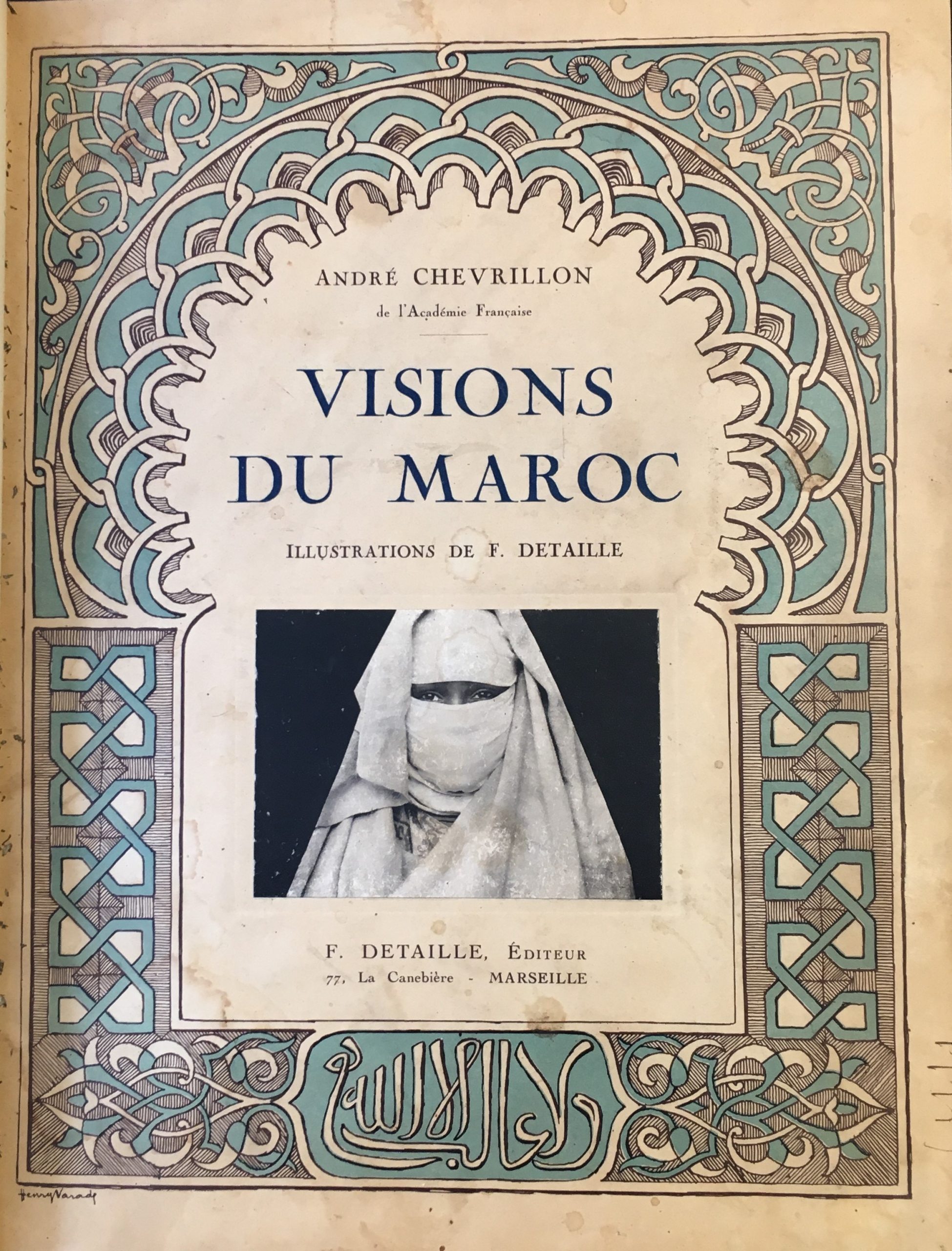Vision du Maroc.
Chevrillon, Andre.
Synopsis
André Chevrillon (1864 – 1957) was a French writer, a nephew of Taine, who chose England and the Orient as objects of study. Chevrillon was born at Ruelle (Charente), and educated at the University College School (London), the École alsacienne (Paris), the Lycée Louis-le-Grand, and the University of Paris. He was a professor of English at the École Navale of Brest in 1887–1888, and from 1889 to 1894 was Maître de conférences at the Faculty of Letters of the University of Lille. He was with the British army at the front during the War, and afterward (1921) was received in the Académie française. His writings fall into two distinct classes: impressions of travel, and critical essays on England and English literature.
“André Chevrillon, through his trip to Morocco, was able to experience a phase of cultural exchange, where diversity and pluralism were largely put forward. This experience was also a phase of reflection on the Self and the Other. Such reflection is characterized by the acknowledgement of the validity of the existence of thought patterns that are different from those of the West. The travel writer has thus distinguished himself from the classical exoticism and from the orientalist ethnocentric vision that minimizes alterity to negativity and inferiority. In parallel, he also succeeded in developing an innovatory discourse, which describes differences in terms of openness, interpenetrating, and mutual understanding, not of fixation, exclusion, and stigmatization”.








